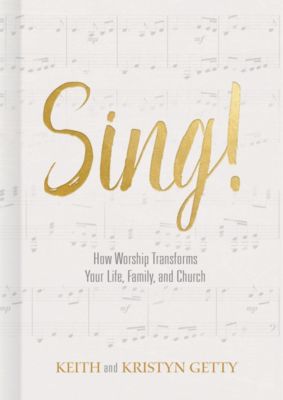
Some Bible verses about worship make us uncomfortable. Here are seven things you may wish the Bible didn’t say about worship.
By Chris Smith
The Bible has much to say about the topic of worship. You could argue it’s one of the major themes throughout Scripture—from the laws regarding Old Testament sacrifices to the angels around the throne in Revelation. Many of the verses about worship are inspiring, like Psalm 95:6: “Come, let’s worship and bow down; let’s kneel before the Lord, our Maker” (CSB). Others offer instruction, such as the various ways in which Psalm 150 tells us to praise. We also see where we praise God for what He has done, shown here in Isaiah 25:1: “Lord, you are my God; I will exalt you.; I will praise your name, for you have accomplished wonders, plans formed long ago, with perfect faithfulness” (CSB).
You would be hard-pressed to find a churchgoer who had issues with Scriptures such as these. But that is not all the Bible says about worship. Some verses about worship make us uncomfortable. They command us to do what we don’t want to do, while others force us to rethink our tightly held opinions. Here are seven things I (and I suspect many others) wish the Bible didn’t say about worship.
1. Worship together
And let us consider one another in order to provoke love and good works, not neglecting to gather together, as some are in the habit of doing, but encouraging each other, and all the more as you see the day approaching.”
Hebrews 10:24-25 (CSB)
I’m sure you’ve heard someone say they can worship God just as easily on the golf course or while on the lake. This is true; God is constantly available to receive our worship. But God commands us to meet together and to do it often. When we avoid gathering with other believers for worship, we are being disobedient to God.
“When we avoid gathering with other believers for worship, we are being disobedient to God.” — Chris Smith Click To TweetBut I certainly understand the temptation. Our lives are incredibly busy, and Sunday could be used to sleep in before tackling our to-do lists. As a worship leader and praise band member, I arrive early for soundchecks every Sunday morning. And each week when my alarm goes off, atheism sounds pretty tempting. However, this tired feeling only lasts until I arrive.
As soon as I’m gathered with fellow believers, I’m quickly energized and happy to be there. Many of the greatest blessings and best friends in my life have come from the church. If I didn’t make it a habit to meet together, I would be missing out on this, and my life would be missing something valuable. I’m not always excited about church after a busy week, and on those days, I wish the Bible didn’t compel me to go to worship, but after being there, I’m always glad I went.
2. Worship requires action
‘Why have we fasted, but you have not seen?
We have denied ourselves, but you haven’t noticed!’‘Look, you do as you please on the day of your fast,
Isaiah 58:3-4 (CSB)
and oppress all your workers.
You fast with contention and strife
to strike viciously with your fist.
You cannot fast as you do today,
hoping to make your voice heard on high.’
Although fasting doesn’t hold the same cultural significance today that it did in the Old Testament, this chapter parallels with modern worship practices and the danger of simply going through the motions. In Isaiah 58, the Lord is speaking to the Israelites about their fasting and why their prayers are not being answered despite their religious activities. Throughout this passage, God condemns worship practices without corresponding action. He instead longs for justice and compassion—to see the oppressed set free, the hungry fed, and food and shelter provided for the needy.
This is a tough teaching. But God makes it clear that if our worship doesn’t lead us to do the work of the gospel in our communities, He doesn’t receive it. You can raise your hands all you want, but if your life doesn’t look different because of it, it’s not worship; it’s just making your arms tired.
3. Worship makes us work
Therefore, brothers and sisters, in view of the mercies of God, I urge you to present your bodies as a living sacrifice, holy and pleasing to God; this is your true worship.”
Romans 12:1 (CSB)
Whatever you do, do it from the heart, as something done for the Lord and not for people, knowing that you will receive the reward of an inheritance from the Lord. You serve the Lord Christ.”
Colossians 3:23-24 (CSB)
The torn veil in the temple the night of Christ’s crucifixion signaled the end of temple worship. The Holy Spirit came at Pentecost, and the presence of God was no longer a localized presence. He is always within us. The implications for worship are endless—one being that now all of our lives are worship. In many ways, this is encouraging. My family time can be worship, fellowship is worship, and even writing this article can be an offering to God. But it also means our work is worship. This can mean our vocation or calling, but it can also apply to any task.
I wish the Bible didn’t say this, because I am tempted by laziness. But there are no exceptions in Colossians 3:23-24. Yes, I concede there is only so much of ourselves to give. If we are to be our best at work, ultimately that means we will fail at home. So we need discernment to properly use our time. Still, these verses are convicting. When I’m at work or practicing my craft, am I doing so as if I am worshiping? What about home repairs or cutting the grass? Or if you’re a student, are you slacking in your schoolwork? A Christian without a strong work ethic is a Christian who does not understand worship.
“A Christian without a strong work ethic is a Christian who does not understand worship.” — Chris Smith Click To Tweet4. Sing a new song
Sing a new song to him.”
Psalm 33:3a (CSB)
For my first full-time music ministry position I was responsible for leading two services of contrasting styles—one traditional and one contemporary. I got the feel of the modern service relatively easily, but the traditional one was more difficult to get a read on. I started by waving my hand as our pianist played from the hymnal. Then I started playing guitar along with our pianist, still straight from the hymnal. I slowly incorporated some of my praise band, adding a mandolin and cajon. Then, one Sunday, I started with a pretty benign praise chorus. A few days later, like a rite of passage, I received my first anonymous email complaint. In the middle it said in all caps, “WE DO NOT WANT TO SING ANY NEW SONGS.”
There’s nothing wrong with having preferences in worship; we all have things we like more than others. But when our preferences govern our worship more than what the Bible says, that’s a problem. John 3:30 says “He must increase, but I must decrease” (CSB). One of my mentors once said it this way, “Corporate worship is where our preferences come to die.” I love the timeless hymns of our faith, but God is still inspiring new generations of songwriters to proclaim his truths in fresh ways.
The mention of singing a new song is also expressed in at least seven other passages in Scripture (Isaiah 42:10, Ps 40:3, 96:1-2, 98:1, 144:9, 149:1, and Rev 5:9). But I have not found any Scripture that directly commands us to sing an old song. The point of this is not to fuel another hymns versus choruses debate but to remind us that the Bible clearly affirms new songs, whether we like them or not.
5. Reconciliation before worship
“So if you are offering your gift on the altar, and there you remember that your brother or sister has something against you, leave your gift there in front of the altar. First go and be reconciled with your brother or sister, and then come and offer your gift.”
Matthew 5:23-24 (CSB)
Conflict among brothers and sisters in the church is as old as the church itself. But in America, these conflicts are exacerbated by the consumerist culture in which we live. You know the story well: Drama goes down at church, and someone gets mad and leaves the church for the better one down the street. This is the easy way out, but it is not God’s way.
In this passage, Jesus states that when you come to worship but are in conflict with your fellow believers, don’t continue in worship. You must first go and make things right with them. This is hard and uncomfortable; we wish the Bible didn’t say it. But can you imagine how much better off the church would be if we all followed this command?
6. Worship as correction
Let the word of Christ dwell richly among you, in all wisdom teaching and admonishing one another through psalms, hymns, and spiritual songs, singing to God with gratitude in your hearts.”
Colossians 3:16 (CSB)
According to Oxford Languages, to admonish is to “warn or reprimand firmly; advise or urge someone earnestly.” Most of us don’t like to be reprimanded in any setting, much less in church. The rest of this verse is great—teaching and singing with thankfulness sounds wonderful. But admonishing? Not so much.
Many of us come to worship to feel good. Being corrected often has the opposite effect. This shows a basic misunderstanding of worship. It’s not about how it makes us feel. Entertainment is designed to make us feel good; we sit back and take it in as passive observers. But worship is a participatory action we take part in with other believers. In this setting, we have accountability—something that is necessary but seldom enjoyable. Are your worship services like a spa, where everyone comes to be spiritually pampered? Or are they like a gym, where we come and do the uncomfortable work that ultimately leads to maturing in our faith?
“Many of us come to worship to feel good. This shows a basic misunderstanding of worship. It’s not about how it makes us feel.” — Chris Smith Click To Tweet7. Worship the right way
When they came to Nacon’s threshing floor, Uzzah reached out to the ark of God and took hold of it because the oxen had stumbled. Then the Lord’s anger burned against Uzzah, and God struck him dead on the spot for his irreverence, and he died there next to the ark of God.”
2 Samuel 6:6-7 (CSB)
We often use phrases such as “it’s the thought that counts” or “their heart was in the right place” to justify our own or other’s well-intended blunders. In the church we say things like, “my intentions were pure” or “God knows my heart.” While God knows and care about our heart posture, we often say this to condone a particular questionable action. This can lead to the belief that God places no requirements or guidelines for worship, and like a lonely grandparent, He’s just thrilled we’re there.
But the Bible strongly says otherwise. The Lord had given Israel strict requirements for the handling of the ark of the covenant, one being that if they touched it, they would die (Numbers 4:15). Poor Uzzah’s heart was in the right place. He did not want the ark to fall, so he reached out to brace it. This directly violated God’s command, and Uzzah paid the ultimate price for his disobedience.
Scripture says many things about worship. But somewhere along the way we’ve made our own rules and assumed God will bless us because we mean well. Like Uzzah, we think our intentions justify our actions. However, God doesn’t just care that we worship, He cares how we worship. While He has given us great freedom in matters of style and form, there are instructions we must heed. We’ve discussed seven of them, and if the last one is of any indication of how serious God is about what He says, we would be wise to obey the other six.
For permission to republish this article, contact Marissa Postell Sullivan.













